NEHS Maths Hub
FREE Sustaining Teaching for Mastery Conference
THE IMPORTANCE OF PROBLEM-SOLVING
Online Thursday 4 July 12:15 – 4:00pm
Please complete the short form below to register for the conference
Every person wishing to attend any of the online workshops needs to pre-register to gain access to the online conference platform (you wont need to pre-select workshops).
Please ensure every colleague wishing to attend registers for access on the day.
Once registered for the conference, you will receive an email with your unique password and a link to our NEHS Maths Hub online conference platform.
Please keep this safe as you will need it on 4 July!
Select a Phase below for conference schedule and session information
Primary / EYFS / SEND
Secondary / Post-16 / SEND
12.15 – 1.15pm KEYNOTE: Problem-Solving
Richard Perring, Assistant Director, NCETM More info

After a short introduction from Becky Shepherd, Maths Hub Lead, Richard Perring from the NCETM will lead our Keynote session on Problem-solving – suitable for all phases.
Maths is about solving problems, but teaching problem-solving is a problem that’s hard to solve. In this session we’ll try to solve the problem of problem solving by thinking about what problem we’re trying to solve and why.
We’ll do some (small!) problems, try to identify what we mean by ‘problem-solving’ and then think about its place in the curriculum and what a teacher might do to teach their class to solve problems.
1.20 – 2.05pm Understanding the Structure of Word Questions
Gareth Metcalfe, I See Maths More info
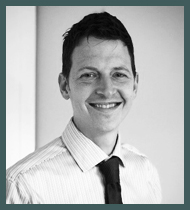
In this session, we will explore a range of techniques for helping children to understand multi-step word questions. This will include slowly revealing information, using equipment and images, spotting misconceptions and comparing 'minimally different' questions.
Gareth Metcalfe, the Director of I See Maths, provides training and resources that help primary school children to build a deep, conceptual understanding of mathematics. Gareth is the author of the I See Reasoning and I See Problem-Solving resources, helping schools to put reasoning and problem-solving at the heart of the maths curriculum.
Gareth is an NCETM CPD Standard Holder and an experienced school leader. He is currently teaching in a range of schools from Reception to Year 6 as well as delivering training nationally.
1.20 – 2.05pm Metacognitive Insights to Problem-Solving
Mr Metacognition (AKA Nathan Burns) More info

Metacognition is a hugely powerful strategy, capable of uplifting student learning by many months. Not only this, but it also holds the 'key' to the problem-solving 'lock'. To begin this cross-phase session, metacognitive theory, and how it allows us to approach problem-solving, will be explored. Following this, strategies that can be used in the classroom, by teachers and students alike, will be provided, ensuring high-quality take-aways for all.
This session will be led by 'Mr Metacognition' (AKA Nathan Burns), who has extensively researched and written on this theory over the past 6 years.
2.10pm – 2.55pm Overcoming difficulties in solving worded problems
Sam Shutkever More info

In this session, Sam will look at some of the difficulties that pupils may face in overcoming worded problems. Pupils can often face issues in applying their understanding to unfamiliar contexts, but some of the barriers to this may be easier to overcome than you would think. This session will aim to give you some strategies to go back into class with, and to enhance your use of worded problems within your lessons.
Sam is the Deputy Maths Hub lead at the West Yorkshire Maths Hub. He has just completed a Masters looking specifically at problem-solving at primary phase, and is extremely passionate about the role of problems as part of lesson design.
2.10pm – 2.55pm Supporting students with SEND as they tackle problem-solving
Amanda Keen More info
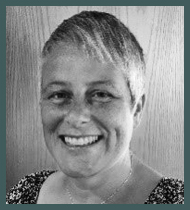
Join Amanda Keen to explore how we can break problem-solving into achievable steps for students who struggle with maths. Taking time to build understanding, develop reasoning skills and foster resilience can help students with a range of difficulties gain more success in what can be a challenging area.
Having qualified as a teacher in 1995, Amanda spent 17 years teaching across the whole of the primary age range (Early Years to Year 6). She then worked in Learning Support across Key Stages 1 to 4 in both independent and special schools, before retraining as a specialist dyscalculia teacher and assessor.
2.10pm – 2.55pm The Mathematics of Paper
Katie Steckles More info
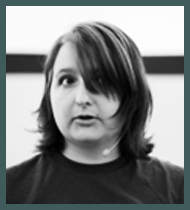
The humble sheet of paper has almost infinite mathematical potential. Join mathematician Katie Steckles as she demonstrates some of her favourite mathematical ideas, and shares some puzzles using both real and imaginary pieces of paper. To join in, you'll need a few sheets of A4 paper, a pair of scissors, sellotape and a pen/pencil - and, if you like, a copy of the printout at katiesteckles.co.uk/downloads/printout.pdf - as Katie reveals the mathematical secrets hiding in household stationery.
Katie Steckles is a mathematician based in Manchester, who gives talks and workshops and writes about mathematics. She finished her PhD in 2011, and since then has talked about maths at universities, schools events, festivals, on BBC radio and TV, in books and on the internet.
3.00pm – 3.45pm Teaching for problem-solving and teaching through problem-solving.
Mike Askew More info

In this presentation, Mike will explore two ways in which problem-solving is important in teaching and learning mathematics. Pupils need to learn to apply their mathematics – teaching for problem-solving – but there are also advantages to starting with a problem and developing mathematics through pupils’ informal solutions – teaching through problem-solving. Both approaches are important as they can lead to different learning outcomes. In particular Mike will address some of the misconceptions about what teaching through problem-solving means.
Mike Askew was, until recently, Distinguished Professor of Mathematics Education at the University of Witwatersrand, Johannesburg, before which he held Chair Professorships at Monash University, Melbourne, and King's College, University of London. Mike researches how to improve the teaching of school mathematics and his more than 200 publications largely focus on the central importance of reasoning and problem-solving in teaching and learning mathematics. He believes all learners are capable of seeing themselves as mathematicians, given supportive, engaging and challenging teaching.
3.00pm – 3.45pm Problem-solving in the Early Years
Margaret Young, NCETM More info
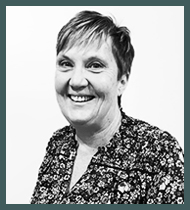
Young children are natural problem setters and solvers. In this session we will explore how to identify problem-solving opportunities across the Reception provision that require children to draw on, and further develop, the mathematical concepts and skills that they are learning. We will consider how to develop children’s mathematical learning behaviours through engaging with them in solving problems, so they become confident talking about their ideas and thinking mathematically.
Margaret is the Assistant Director for School and Professional Development in NCETM and leads on the Specialist Knowledge for Teaching Mathematics (SKTM) for Early Years Practitioners programme along with SKTM Primary Teachers and SKTM Primary Teaching Assistant programmes. She has spent many years working with primary schools in Australia and in England to develop their mathematics teaching and learning.
3.50pm – 4.00pm What's new for 2024
Becky Shepherd More info
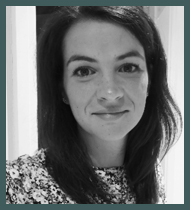
The Maths Hub offer is constantly evolving and there are many new and exciting opportunities next year. In this brief final session Becky will wrap up the conference and share the new Maths Hub programmes for 24/25 and how you can sign-up.
12.15 – 1.15pm KEYNOTE: Problem-Solving
Richard Perring, Assistant Director, NCETM More info

After a short introduction from Becky Shepherd, Maths Hub Lead, Richard Perring from the NCETM will lead our Keynote session on Problem-Solving – suitable for all phases.
Maths is about solving problems, but teaching problem-solving is a problem that’s hard to solve. In this session we’ll try to solve the problem of problem-solving by thinking about what problem we’re trying to solve and why.
We’ll do some (small!) problems, try to identify what we mean by ‘problem-solving’ and then think about its place in the curriculum and what a teacher might do to teach their class to solve problems.
1.20 – 2.05pm Belonging in the STEM classroom
Sahar Shillabee and Nora Kettleborough, Surrey Maths School More info
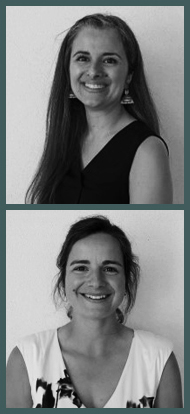
A low sense of belonging in one’s STEM field has been shown to adversely impact one’s persistence and studies have shown that women and students of colour are most likely to persist in STEM when they feel a sense of belonging. In this session we'll explore what this means for mathematics/STEM teaching and strategies for cultivating a sense of belonging for all.
Sahar Shillabeer is one of the founding Co-Headteachers of Surrey Maths School. She read Maths at the University of Oxford and has a Masters Degree in Maths Education from UCL. She began teaching in 2005 and has a wealth of experience in a variety of schools and in a number of different roles.
Nora Kettleborough is also one of the founding Co-Headteachers of Surrey Maths School. She was born and raised in Manchester before joining Imperial College London to study an integrated Masters in Physics. She went straight into teaching and has led a variety of Physics departments before her most recent position as Assistant Head (Personal Development, Behaviour and Welfare) at King’s College London Maths School (KCLMS).
1.20 – 2.05pm Metacognitive Insights to Problem-Solving
Mr Metacognition (AKA Nathan Burns) More info

Metacognition is a hugely powerful strategy, capable of uplifting student learning by many months. Not only this, but it also holds the 'key' to the problem-solving 'lock'. To begin this cross-phase session, metacognitive theory, and how it allows us to approach problem-solving, will be explored. Following this, strategies that can be used in the classroom, by teachers and students alike, will be provided, ensuring high-quality take-aways for all.
This session will be led by 'Mr Metacognition' (AKA Nathan Burns), who has extensively researched and written on this theory over the past 6 years.
2.10 – 2.55pm The Problem with Problem-Solving
Josie Pinder, Axiom Maths More info

What is good problem-solving in KS3 mathematics? We conducted a trial with 1700 pupils and 140 teachers, using comparative judgement to assess answers to a set of mathematical reasoning problems. In this session we’ll look at how pupils did and what we can learn from it. In particular we’ll explore how problem-solving in mathematics is often experienced as “worded problems” in alleged “real-life” contexts, and how “problem-solving toolkits” often pushed at teachers neglect the types of knowledge needed to solve problems. We’ll look at how to develop these alongside crucial problem-solving attitudes.
2.10pm – 2.55pm Supporting students with SEND as they tackle problem-solving
Amanda Keen More info

Join Amanda Keen to explore how we can break problem-solving into achievable steps for students who struggle with maths. Taking time to build understanding, develop reasoning skills and foster resilience can help students with a range of difficulties gain more success in what can be a challenging area.>
Having qualified as a teacher in 1995, Amanda spent 17 years teaching across the whole of the primary age range (Early Years to Year 6). She then worked in Learning Support across Key Stages 1 to 4 in both independent and special schools, before retraining as a specialist dyscalculia teacher and assessor.
3:00 – 3:45pm Embedding a Problem-Solving Culture
Jo Kilby and Samantha Munro More info

How can we embed a problem-solving culture in our departments?
During this session we will consider how to enhance, create or change the culture of problem-solving in our departments, our lessons and hence our pupils.
We will explore mechanises of influence and think about what actions we can take to create this change.
You will come away from this session with some ideas on ways to influence the members of your department, as well resources to use with your department and pupils.
3:00 – 3:45pm Exploring the NCETM’s new KS4 PD Materials
Sam Clarkson More info
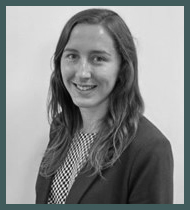
The recent launch of the NCETM KS4 resources builds on the KS3 resources by providing a detailed and structured framework for teaching and learning at the Key Stage 4 level. These resources focus on delivering a comprehensive understanding of key mathematical concepts through a granular breakdown of themes, core concepts, and specific learning objectives.
Sam is Assistant Maths Hub for Secondary at NEHS Maths Hub and is also Assistant Principal at Weydon School. She is passionate about ensuring all students have a rich and in depth experience in maths and how implementing Teaching for Mastery can support this vision.
3.50pm – 4.00pm What's new for 2024
Becky Shepherd More info

The Maths Hub offer is constantly evolving and there are many new and exciting opportunities next year. In this brief final session Becky will wrap up the conference and share the new Maths Hub programmes for 24/25 and how you can sign-up.